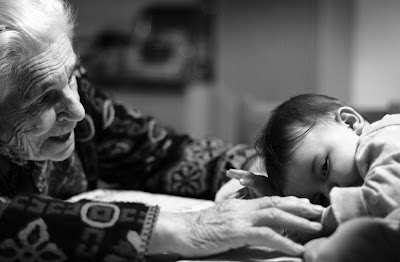Yesterday I had a fascinating conversation with Laurel Wittman, President of the Well Spouse Association. Laurel is a long-time carer for her husband who has MS. After chatting a while about spousal caregiving, I asked, “How does your husband care for you?” It was question that changed the direction of our conversation and helped us both reflect on the reciprocal nature of care.
Today on National Caregiver Day (USA), I want to share how I feel about receiving care.
My son Nicholas has multiple disabilities and throughout the course of his life, he has consoled me, lifted my spirits and certainly made me laugh. My Mom had dementia for the last ten years of her life but she would say, “Sit down little one. Let me give you a neck rub.” When family members in my care offer me care, I am usually taken a bit by surprise. I pause and think, “Why yes, I need this, thank you!”
Care is a two way street and part of building a new paradigm for active citizenship will have to include some training in “receiving” care. Why do we so often believe that we have only one role as caregivers: to GIVE care?
.jpg)
Age does not preclude anyone from enjoying the benefit of understanding the rules of engagement when it comes to receiving care. Children are taught to respect their parents’ efforts to provide for and nurture everyone in the family. Why should this expectation diminish in the case of disability or ageing?
Perhaps we need to start with ourselves. The next time I am having difficult day and a friend says “Is there anything I can do?” I plan to answer “Yes”, even if I can’t articulate what kind of help I need. The first step is accepting an offer of help. The second step is saying “Thank you!”
Nicholas knows how to be kind and when I am sad, he offers me hugs (his hugs are the BEST). He is such a good listener. I know that his nurses share stories of heartbreak and he nods empathetically. He is a compassionate and loving person. Why would anyone (especially me) believe that he can or should not give care because he is disabled?
Educators have managed to incorporate lessons in ethics and self-esteem in the curriculum. I propose we add some learning objectives to our teaching that relate to giving and receiving care. At lunch one day, children could experiment with feeding each other. In a care home, residents could set aside one hour per week to wash the face and hands of the care home staff, or simply listen to their problems.
If we believe that relationships are the key to a good life throughout life, it ensues that everyone will at some point give and at other points need to receive care. But the language, good manners and ease of transition from one role to another is key to getting good care into the social water supply.
